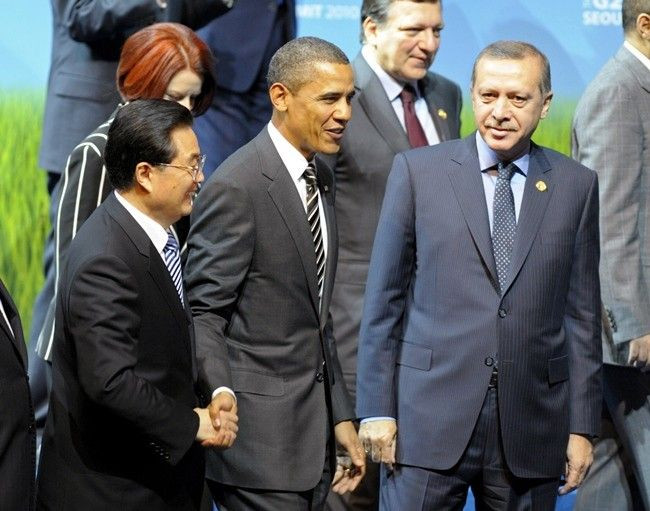Critics blast Obama's ineffectual waltz through Asia

President Barack Obama's 10-day Asian tour has been dubbed a failure by media owing to key failures in binding together the much-awaited free trade pact with South Korea and the inability to persuade a majority of the G-20 nations to support the U.S. position on global current account imbalances.
Obama played down the failure to get through the South Korea free trade pact, saying what was more important was to land a deal favorable to Americans than making pronouncements at global platforms.
However, a delay in pushing through the important pact with South Korea will undercut Obama's own professed plan of steering the country out of crisis by promoting its exports. The president has pinned hopes on doubling exports in the next five years, but the deadlock in Seoul means American auto and beef exports will miss out on a fresh opportunity.
The failure to close out the FTA is even more a personal blow for Obama as he had categorically said in June that he will have a deal at the G-20 summit.
And in Seoul, the G-20 summit failed to dispel fears of currency wars and trade protectionism. For the U.S. especially, the G-20 extravaganza was even more forgettable. The President failed to force the hand of China and Germany to sign up an agreement to reduce their current account surpluses, but it was not exactly a catastrophe. It was expected that consensus on this contentious issue would fail to materialize at the G-20. But Obama's supposedly meek reaction to a Sino-German counterattack on Quantitative Easing attracted harsh criticism.
Nobel laureate Paul Krugman, writing for the New York Times, blasted Obama for not facing up effectively to the Sino-German demand that the Federal Reserve stop its policy of quantitative easing. What Mr. Obama should have said is that nations' running huge trade surpluses -- and in China's case, doing so thanks to currency manipulation on a scale unprecedented in world history -- have no business telling the United States that it can't act to help its own economy, Krugman wrote.
William R. Hawkins, a consultant specializing in international economic and national security issues, writes that the failure at G20 means the U.S. efforts to settle the trade issue by diplomacy has failed. ... with an open economy it (U.S.) has no leverage against determined rivals who benefit from the status quo.
He says the inability to act on the bulging trade deficit has impacted jobs and economic growth. The U.S. deficit topped $482 billion during the first nine months of 2010. The deficit has reduced U.S. economic growth by more than half this year, keeping it too low to generate jobs on a level than can bring unemployment down in any significant fashion.
America must now take control of its economy and destiny and do what it must to get the nation moving again and put its people back to work, says Hawkins, a former economics professor and Republican Congressional staff member.
Two years ago Barack Obama was superman. Now he can't do anything right, wrote former Newsweek International editor Fareed Zakaria in Washington Post.
Zakaria said Obama went to the wrong places if his intention was to promote U.S. exports and foster jobs in the country.
Only one of the countries he visited (Japan) is among the top six destinations for U.S. exports. He could have saved a lot of fuel and traveled to Canada and Mexico, which together buy 20 times as many American goods and services as does India and 10 times as many as does South Korea. (Indonesia is not even in the top 20 countries that buy U.S. exports.)
At the Asia-Pacific Economic Cooperation (APEC) summit regional leaders promised concrete steps to push forward a regional free-trade agreement, but failed to set a target or deadline for establishing it.
However, Chinese President Hu Jintao used the APEC platform to snub the U.S. yet again over its demand to boost China's currency value. Hu said China will move forward the reform of currency exchange rate regime in a self-initiated, controllable and incremental manner.
In India Obama got a rousing welcome and then he earned lot more of fans there by promising to support India's cause in its quest for a permanent membership in the UN Security Council. But that caused an expected, severe backlash from other allies.
His 28 words all but destroyed his relationship with Pakistan with potential devastating affects on the war in Afghanistan. “That is why I can say today, in the years ahead, I look forward to a reformed United Nations Security Council that includes India as a permanent member”. It has created a tempest in Islamabad which stretched to Rome and Beijing and the Arab world, wrote Pakistani newspaper The Dawn.
© Copyright IBTimes 2024. All rights reserved.





















